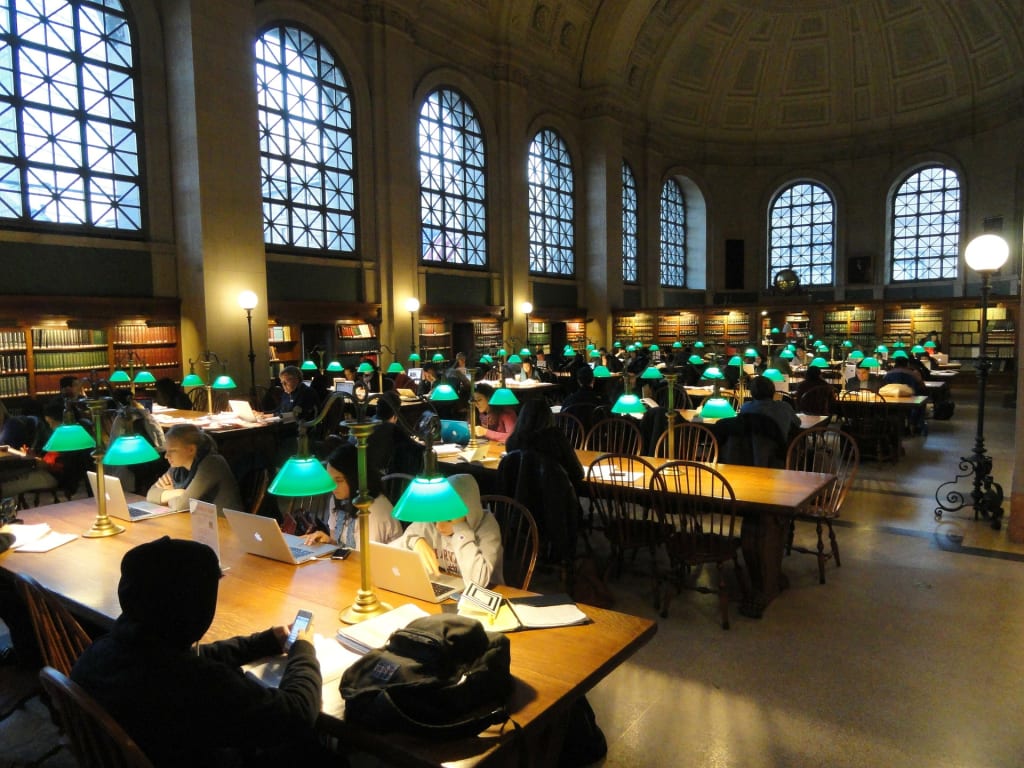Public Education: Major Problems and How to Avoid Them
Public Education: Major Problems and How to Avoid Them

Unfortunately, it’s common knowledge that the public education system has a number of flaws. To address those, however, we have to acknowledge, and analyze them. Among these, there are small scale changes that students, parents, and teachers can make, as well as larger-scale problems that require legislative action. Here, we’re going to take a closer look at these problems, and some highly discussed solutions.
Technological Innovation

Technology is growing every day. We see many educators fight against it. To a point, this makes sense. Not allowing students to scroll through Facebook during a lesson makes sense. Once this goes too far, it’s somewhat limiting.
For one, the internet offers a lot of resources. That includes study tools, such as collaborative platforms, and essay writing services. The latter can help students learn to create an APA essay format for future assignments. Even further, complete bans on electronics don’t prepare children and young adults well for the future.
The best way to handle this is to use structured lessons. Typing classes have been in play for a while, and now schools are implementing similar programs. That includes ideas such as spreadsheet lessons, word processor practice, and introduction to online tools.
Stress Caused by Standardized Testing

Standardized testing became a large focal point after President Bush signed the No Child Left Behind Act in 2002. The idea behind this came from a positive place but, as legislation often does, it backfired. The American education was lagging behind comparatively, so the idea was that these tests would reveal lapses in performance. The bad news is that this led to what many refer to as “teaching to the tests.”
The main problem that many criticized is that this type of testing put the spotlight on educators. This led to them teaching more aggressively for an obvious reason; their jobs depend on it. Another issue is that these are measured by performance increase, rather than general performance. This means that if a student scores high twice in a row, it could count against educators, because they didn’t make the predicted jump.
It’s going to take a number of measures to address this problem. Primarily, the standards need to change, and we’re seeing that. President Obama signed the Race to the Top Act in 2009. This was meant to change how educators were evaluated, contribute more funding, and give state-level governments more education rights. It helped, but it didn’t solve the problem. Because the legislation is a big part of the solution, individuals—as cliche as it might sound—should make themselves heard through their vote. Yale Insights interviewed the former Secretary of Education, John King, on his views on measures to help this.
Personal vs Academic Life

Personal life and academic life aren’t two separate spheres. If a child is stressed about their home life, their friends, or a number of alternatives, it’ll reflect in their grades. There are a few measures adults can take on this front.
To start, let’s look at parents. In a perfect world, every parent would be dedicated and supportive, but that isn’t always the case. For the ones that live up to those expectations, though, make sure to offer support. This can include offering support, working closely with the school, and more.
On the educator’s side, it’s a good idea to keep an eye out for any signs of alarm. This could be high-stress levels, indicators of mental health struggles, bullying, or even abuse. Sometimes the intervention of a third-party such as a teacher or counselor can help significantly. To do this, teachers should have a degree of training to recognize these signs.
Conclusion
There is a long list of challenges that public education faces. To start to address them, we need to take an honest look at them, and consider what approaches might counteract them.






Comments
There are no comments for this story
Be the first to respond and start the conversation.